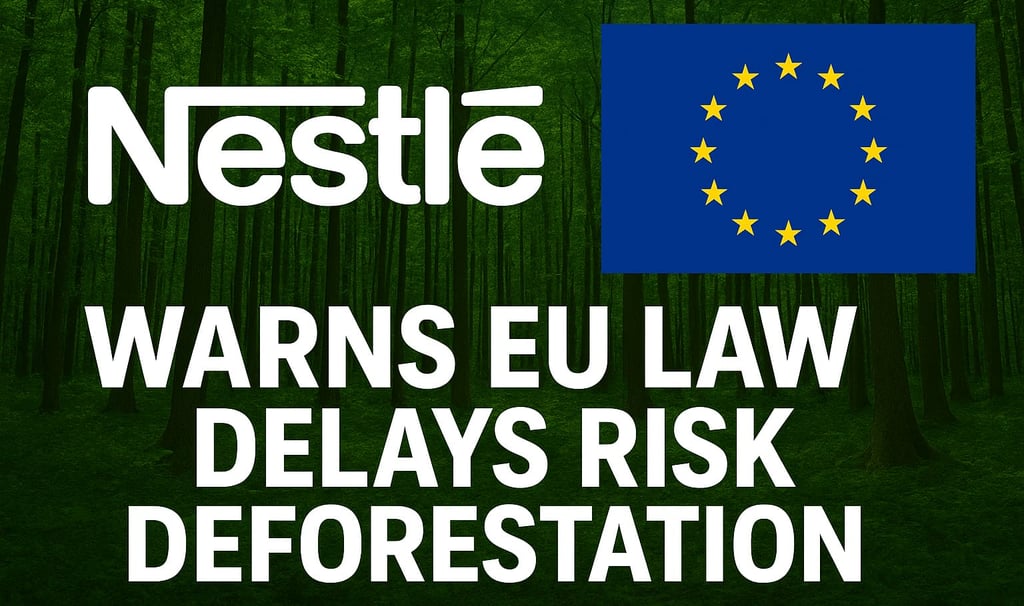Nestlé Warns EU Law Delays Risk Deforestation and Climate Goals
Nestlé and global firms warn EU that delaying deforestation law risks forests, climate goals, and sustainable supply chains.
Raja Awais Ali
10/3/20252 min read


Nestlé and Global Companies Warn EU Law Delays Risk Deforestation
Major global food and agricultural companies, including Nestlé, Ferrero, and Olam Agri, have raised serious concerns over the European Union’s decision to delay the full implementation of its landmark EU Deforestation Regulation (EUDR). They argue that the postponement will endanger forests and undermine efforts to fight climate change.
The EUDR, passed in 2023, aims to stop the sale of products in Europe that are linked to deforestation. This includes palm oil, cocoa, coffee, soy, beef, and timber. Under the law, companies must prove that their supply chains are not connected to forest destruction.
However, the EU recently announced that the law’s complete enforcement will be postponed by one year to allow member states and companies more time to prepare. While the EU calls this a “transition period,” industry leaders argue the delay puts forests at greater risk.
Nestlé representatives said: “We are ready to protect the environment, but continuous delays will only benefit companies still cutting down forests to source raw materials. This threatens both the environment and Europe’s sustainable economy goals.”
Other food companies echoed this concern, stressing that the EU must act quickly to implement the law. Environmental experts note that forests act as the world’s “carbon sinks,” absorbing carbon dioxide from the atmosphere. Ongoing deforestation could accelerate global warming, making climate change harder to control.
The EU insists that companies need time to improve traceability systems and data collection to comply with the regulation. But critics argue this is simply an excuse to delay and that the environmental costs will be severe.
Environmental groups in Europe are also backing Nestlé’s call, warning that consumers will unintentionally contribute to deforestation-linked products if the EU law is not enforced promptly.
This debate has now become a political issue in Europe. Supporters of the law demand urgent action to save forests, while some industries and member states view the regulation as an economic burden.
Ultimately, the core question remains: will the European Union prioritize the protection of forests, or will it continue to bend under economic pressure? Nestlé and other major companies have sent a strong message — further delays mean further forest destruction.
Stay informed with the latest national and international news.
© 2025. All rights reserved.